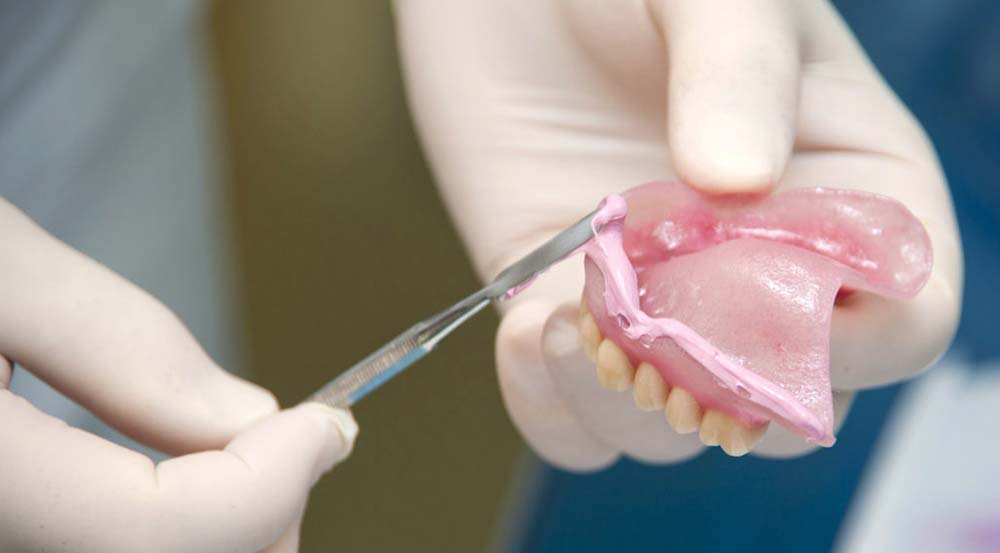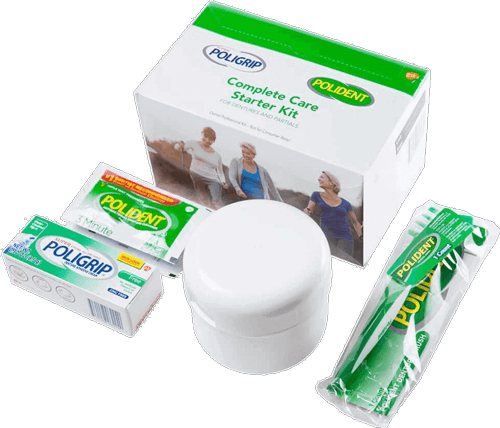
What Type of Denture Repair and Denture Reline Should You Choose?
Dentures are durable and long-lasting, but they still need regular professional care – just like your natural teeth. You will need to see your denturist regularly for a denture repair and denture reline; doing so will ensure they perform at their best, keep them comfortable in your mouth, and significantly extend the life of your dentures.
Types of Denture Repair and Denture Reline
When you go in for a denture repair and denture reline there are several types of services they may recommend.
Denture Repair: A denture repair fixes any cracks or breaks in your denture base or teeth. These can be caused by improper handling or dropping of your dentures, or simply occur over time due to regular use. Even the most careful denture wearer can develop cracks in their dentures from chewing, which is why it’s important to visit your denturist regularly and have your dentures inspected. Cracks that are detected and repaired early can prevent major problems later. If you ever notice any damage to your dentures between regularly scheduled visits with your denturist, go in right away. Never wear broken dentures, and don’t try to repair them yourself.
Denture Rebase: A denture rebase is recommended when the base of your dentures is so damaged or ill-fitting that it cannot be adequately repaired or relined, but the teeth are still in good shape so a complete replacement of your dentures is not necessary. Your denturist will completely remove the base of your dentures, take new impressions, and replace your false teeth on a new acrylic base.
Hard Reline: Dentures need to be relined regularly to maintain a proper fit. Since the soft tissues in the mouth are continually changing shape, it’s to be expected that they will need to be adjusted regularly – this is normal and not cause for concern. One type of reline is a hard reline, in which the denturist will scrape off a portion of the hard acrylic and replace it with putty to take a new set of impressions. The impressions will then be used to re-form the acrylic base of the dentures. This process should be done every two years on full dentures.
Soft Reline: A soft reline is used when a patient experiences discomfort or sore spots as a result of their dentures. Some of the hard acrylic base is scraped off and replaced with a softer, more pliable material. Soft relines are viewed as more comfortable, but they only last 1-2 years before they need to be redone.
Temporary Reline: A temporary reline is done with an even softer and more pliable material than a soft reline, and is reserved for patients with swollen or severely irritated gums. The purpose is to allow for use of the existing denture in a better-fitting, more comfortable manner while the gums heal and return to normal. After the mouth has healed, the patient can then get accurate impressions for new dentures or a hard reline. Temporary relines only last for a few months.



